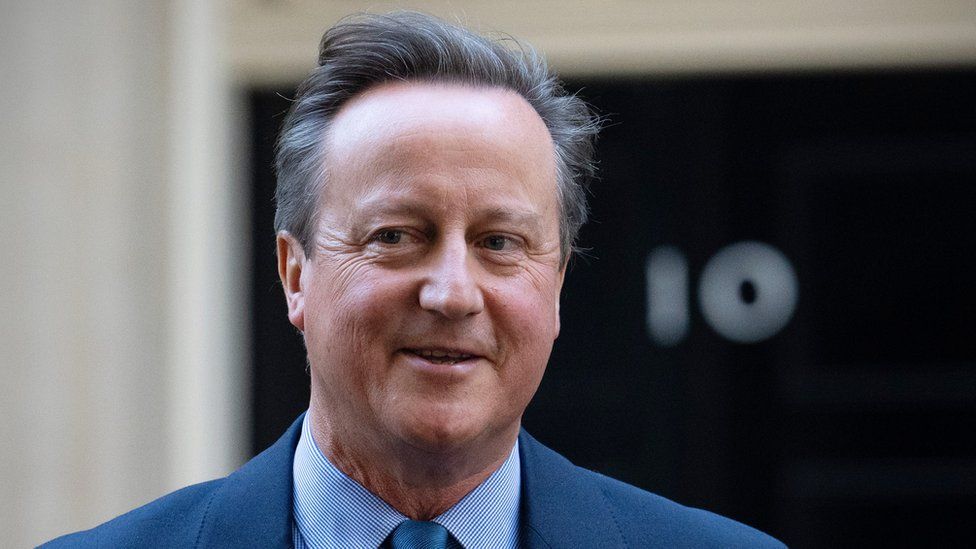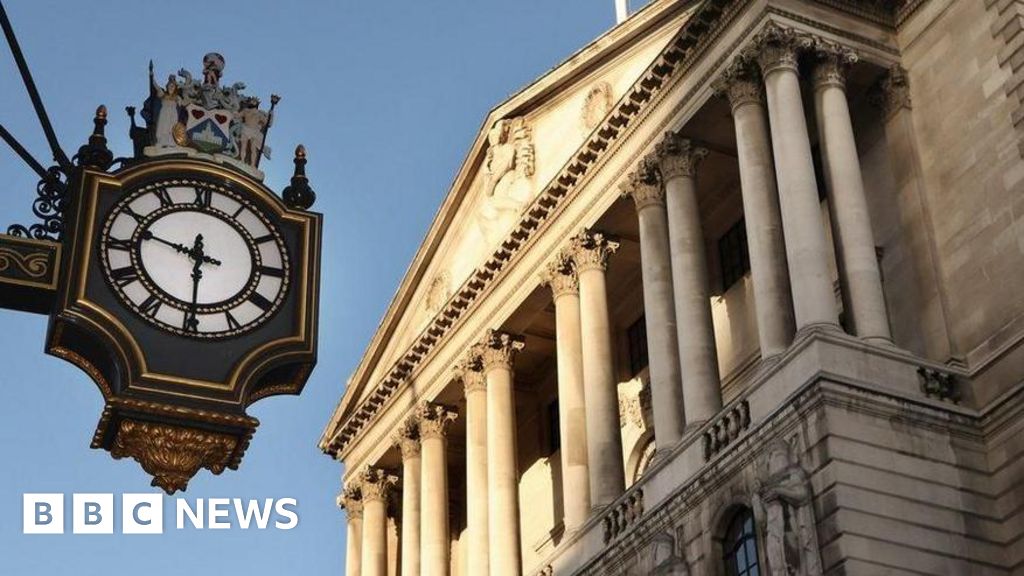ARTICLE AD BOX
 Image source, Getty Images
Image source, Getty Images
By Paul Seddon
Politics reporter, BBC News
When David Cameron quit Downing Street in the wake of the Brexit referendum in 2016, he quipped that he had been the future once.
It was an ironic reference to a joke he himself had made about then-PM Tony Blair in 2005, shortly after taking over as Conservative leader.
But now the former prime minister is indeed back - making a surprise return to government as Rishi Sunak's new foreign secretary, replacing James Cleverly.
The move has sent shockwaves through Westminster, and left many scratching their heads as to what it will mean for British politics.
Putting the man who blew up his own premiership by calling - and then losing - the Brexit vote in charge of the Foreign Office looks like a big throw of the dice from Mr Sunak.
It is also a strange move from a prime minister who only weeks ago was seeking to define himself against every government since the early 1990s.
There were reports that Lord Cameron - as he will now be known, as he heads to the House of Lords in order to take up his cabinet role - was unhappy with that remark.
He also recently spoke out against Mr Sunak's decision to axe the northern leg of the HS2 rail project.
He has now said, in a statement upon his appointment, that although he disagreed with "some individual decisions" made by Mr Sunak, he is a "strong and capable prime minister".
His ambition, he added, is to be part of the "the strongest possible team" as the Tories head into a general election expected next year heavily trailing Labour in the polls.
His six years at the top of government will undoubtedly be an asset to Mr Sunak, at a time when the government is consumed by foreign crises in the Middle East and Ukraine.
But with long-serving figures like Jeremy Hunt and Michael Gove already in the cabinet, it could make it even harder for the prime minister to present himself to voters as a force for change.
There could also be some unease among Tory circles about the "golden age" of relations with China that was a key feature of Lord Cameron's own foreign policy when he was the occupant of No 10.
Image source, Getty Images
Image caption,David Cameron has returned to government only hours after taking part in Remembrance Sunday as a former PM
Since standing down as prime minister seven years ago, Lord Cameron has kept a relatively low public profile. He released a memoir in 2019, and has campaigned for more research into Alzheimer's disease.
He was thrust into the spotlight in 2021, however, when it emerged that he had taken a lucrative job lobbying for now-collapsed finance company Greensill Capital.
He faced a storm of criticism for repeatedly texting ministers on behalf of the company during the Covid pandemic.
He later said he had acted in good faith but admitted there were "lessons to be learnt" from the scandal, and he should have contacted ministers in a more formal way.
A committee of MPs, however, accused him of a "significant lack of judgement".
Coalition concerns
After failing to win a majority at the 2010 election, Lord Cameron took the Conservative Party into a coalition with Nick Clegg's Liberal Democrats, bucking the UK's norm for single-party government.
Defying initial expectations, their government functioned better than expected.
It completed a full five-year term and introduced sweeping changes in areas including the education system, the NHS, the benefits system, and pensions.
Tensions emerged, however, as the Lib Dems haemorrhaged support over unpopular coalition policies such as huge cuts to public spending aimed at reducing the deficit, and increasing university tuition fees.
But it was the relationship with the increasingly vocal and rebellious right-wing of his own party that would prove even harder to manage, and eventually lead to his downfall.
Image source, Getty Images
Image caption,Mr Cameron and Nick Clegg formed a coalition government in 2010
In many respects, his premiership represented a tale of two referendums.
He found himself on the winning side in 2014, when Scots voted against independence.
The decision was made at a time when the Conservatives were losing support to the Eurosceptic UK Independence Party.
Cameron's first PMQs: 'He was the future once'
Europe was not the issue it might have been at the 2015 general election had he not promised a referendum. In the end, UKIP only managed to win one seat.
But the referendum the following year saw voters defy Lord Cameron's government and take the historic decision to vote for Brexit.
He had put himself front and centre in the official Remain campaign, which majored on the economic risks of voting to leave but was accused by critics of being negative and uninspiring.
And although he had promised during the campaign to stay on as prime minister whatever the result, he decided to fall on his sword and announced his resignation outside Number 10 the morning of the referendum result.
Then after a "period of reflection" over the summer, he announced he would be standing down as an MP and leaving frontline politics for good.
Now he will once again stride the corridors of power under the Brexit-voting Mr Sunak, as his career enters a new chapter.

 1 year ago
32
1 year ago
32








 English (US) ·
English (US) ·